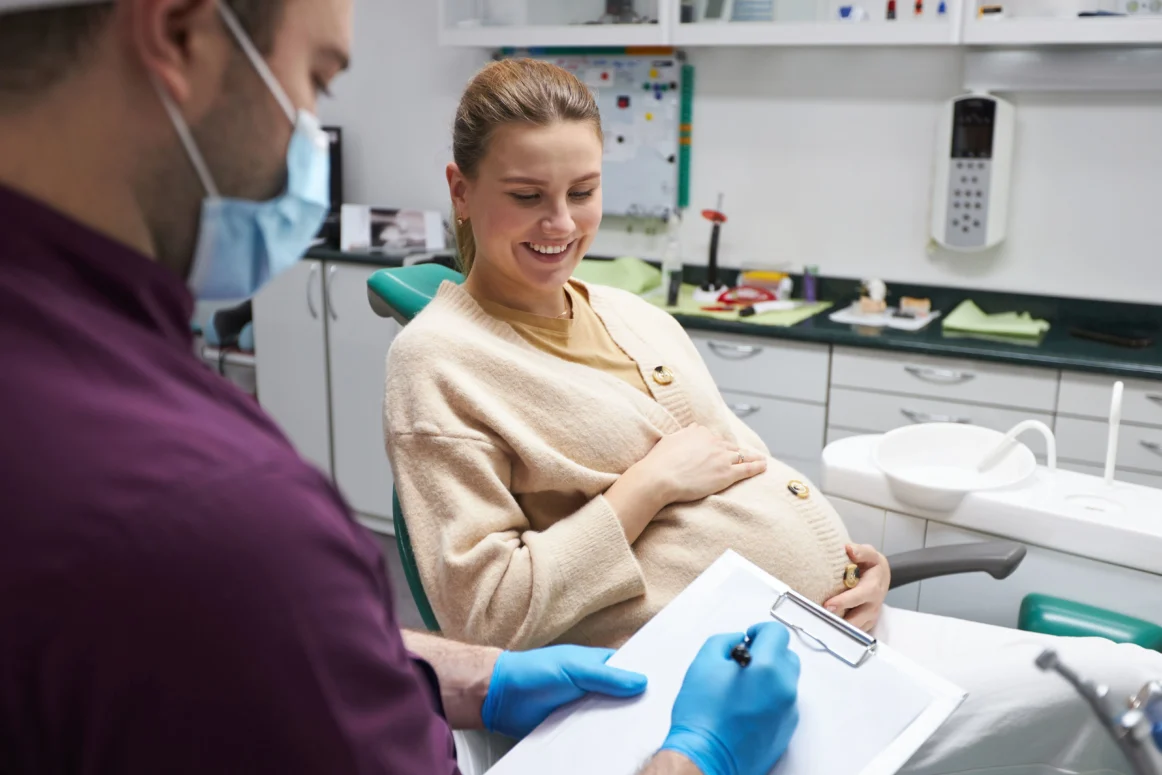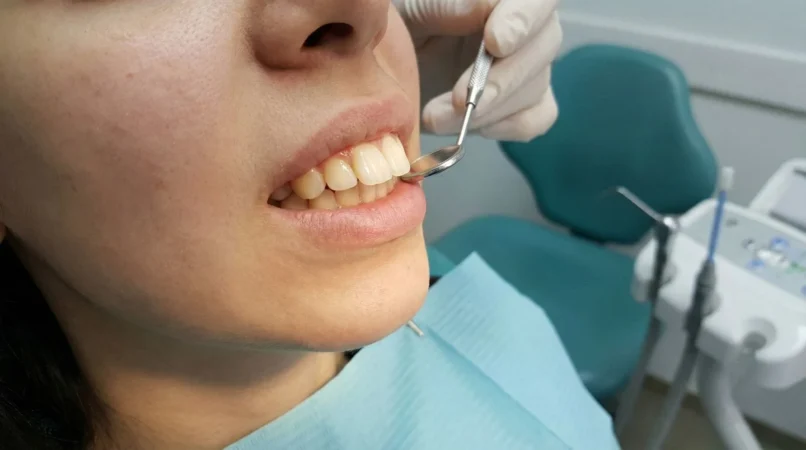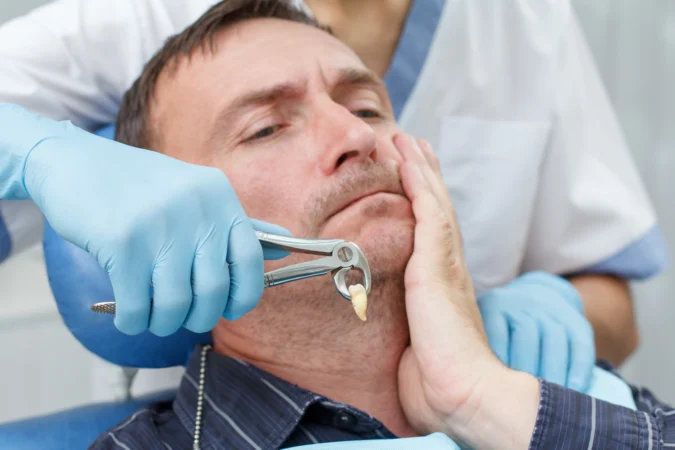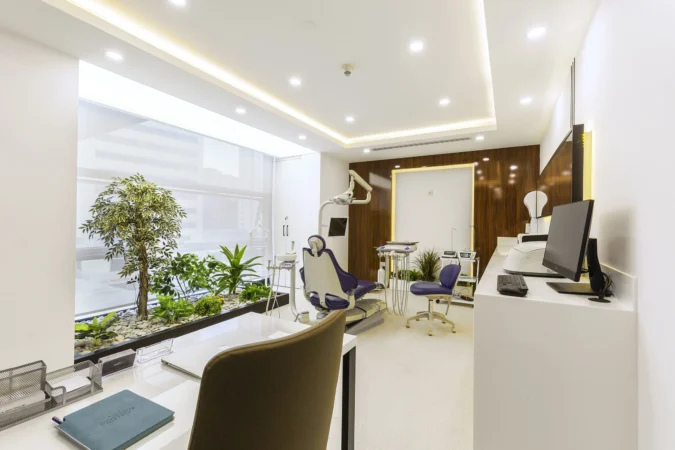Table of content
Dental Care for Moms-to-Be
Can I visit the dentist during pregnancy? Absolutely! But not before you are done with reading this article. Pregnancy is an exciting journey filled with joy and anticipation, especially for new mothers. However, it also comes with unique challenges. While being excited, it’s crucial to prioritize your oral health, as it plays a key role in ensuring both your and your baby’s well-being.
This article will explore the importance of maintaining good oral hygiene while expecting newcomers. We’ll address common concerns about dental care during pregnancy and provide practical tips for keeping a healthy smile throughout this special time.
Visiting the dentist during pregnancy is safe and essential for your health and your baby’s development. Dental issues such as gum disease or cavities can potentially impact your pregnancy, so staying on top of your oral care is important. Your dentist can offer personalized advice and care. By taking proactive approaches to your dental care, you can protect your smile and enjoy this special journey with peace of mind. Let’s elaborate on this special guide from DentSpa for all mothers who are planning to get pregnant or already inquiring about dental care in their pregnant months.
Pre-Pregnancy Dental Care
Planning your dental care before pregnancy is crucial for ensuring both your well-being and that of your baby. Pre-pregnancy dental care is important as it sets the solid foundation for a healthy journey into motherhood, making it a central part of your overall pregnancy care. Here are some tips for mothers planning to take care of their oral health during pregnancy:
- Professional Teeth Cleaning: Schedule regular visits to your dentist for thorough cleanings. Removing plaque, tartar, and stains provides a fresh start for your oral health during pregnancy.
- Examination of Gum Tissue. Your dentist must assess the health of your gums. Healthy gums are vital, particularly during pregnancy, as they play a critical role in preventing later complications such as preterm birth and low birth weight. (Indeed, there is a correlation, as supported by research.)
- Early Treatment of Oral Health Issues: Address any existing dental problems, like cavities or gum disease, before pregnancy. Treating these issues early reduces the risk of complications during pregnancy and ensures a healthier journey into motherhood
- By planning and prioritizing these steps in your dental care routine, you’re taking proactive measures to save your oral health and maintain a healthy pregnancy.
Common Dental Concerns During Pregnancy
Pregnancy is a unique chapter in a woman’s life; however, it might make taking care of your oral health more challenging. While focusing patiently on your baby’s nutrition and growth, don’t overlook your teeth and gums. Here’s how to address common dental problems that might develop during pregnancy along with their causes and treatments:
Pregnancy Gingivitis:
- Cause: Hormonal shifts, including estrogen and progesterone, The change in hormones levels make your gum more likely to be inflamed, leading to bleeding gum and swelling.
- Prevention: Maintain impeccable oral hygiene, including gentle brushing twice a day and regular flossing.
- Treatment: Professional cleaning and scaling help manage gingivitis. Your dentist will guide you on safe treatments during pregnancy. Don’t skip regular dental checkups.
Periodontal Disease:
- Cause: Untreated pregnancy gingivitis can progress to periodontal disease, a serious gum infection affecting the bone supporting your teeth.
- Prevention: Early intervention is crucial. Attend regular dental visits and practice proper home care.
- Treatment: Scaling and deep cleaning may be necessary. Seek personalized advice from your dentist.
Pregnancy Tumors:
- Cause: Hormonal changes during pregnancy can lead to the development of noncancerous growths on your gums, which typically appear in the second trimester. Don’t be alarmed by the term “tumors” as they are benign growths.
- Symptoms: Tender, swollen growths that may interfere with eating or drinking.
- Treatment: Most pregnancy tumors resolve after giving birth. If discomfort persists, consult your dentist.
Tooth Decay:
- Cause: Pregnancy cravings may lead to consumption of sugary or high-carb snacks, increasing the risk of tooth decay and cavities.
- Prevention: Choose nutritious snacks and rinse your mouth after indulging in treats.
- Treatment: Regular dental checkups help catch cavities early, and fluoride treatments strengthen enamel.
Tooth Sensitivity:
- Cause: Acid reflux and morning sickness expose teeth to stomach acid, which can erode enamel over time, causing sensitivity.
- Prevention: Rinse your mouth after vomiting and wait about 30 minutes before brushing to protect the softened enamel.
- Treatment: Desensitizing toothpaste and fluoride rinses can alleviate sensitivity.
Prioritizing dental care during pregnancy is highly important, it plays a role in ensuring both your well-being and that of your baby. Don’t hesitate to seek professional advice and treatment for any dental concerns that arise during this important time, and remember we are only one message away. At DentSpa, our competent medical team is equipped with the latest technology and great experience. The team of dentists and specialists is ready to address your concerns.
Frequently asked questions
Is local anesthesia safe during pregnancy?
Yes, according to the British Journal of Anesthesia some local anesthesia is considered safe for pregnant women, they are commonly used for various procedures, including dental treatments, mole removal, and dental minor surgeries. Local anesthetics (like lidocaine) manage discomfort during procedures without posing risks to your baby.
Can you get your teeth cleaned at 37 weeks (equivalent to 8 months) pregnant?
Yes, it is generally safe to have your teeth cleaned at 37 weeks (8 months pregnant), but many pregnant women at this stage experience back pain and may find it challenging to remain in one position for an extended period. You can discuss with your dentist to find a position that feels more comfortable for you during treatment. Alternatively, you can consider postponing the cleaning until after giving birth if that would be more comfortable for you. The decision ultimately depends on your back health and what feels best for you.
Is dental cleaning safe during pregnancy?
Yes, dental cleaning is not only safe during pregnancy, but they are also highly recommended by the dentist’s community, Regular cleaning effectively helps remove plaque and prevent gum disease, which has been linked to preterm birth. Consider dental cleaning during pregnancy as a proactive measure to reduce the risk of a later stage of pregnancy.
Which Months Are Safe for Dental Procedures During Pregnancy?
The best time for dental cleanings during pregnancy is the second trimester. You can comfortably lie on your back without the challenges of morning sickness or back pain. This applies to cleanings, scaling, and treatment procedures like fillings or crowns.

















 70%
70% 

